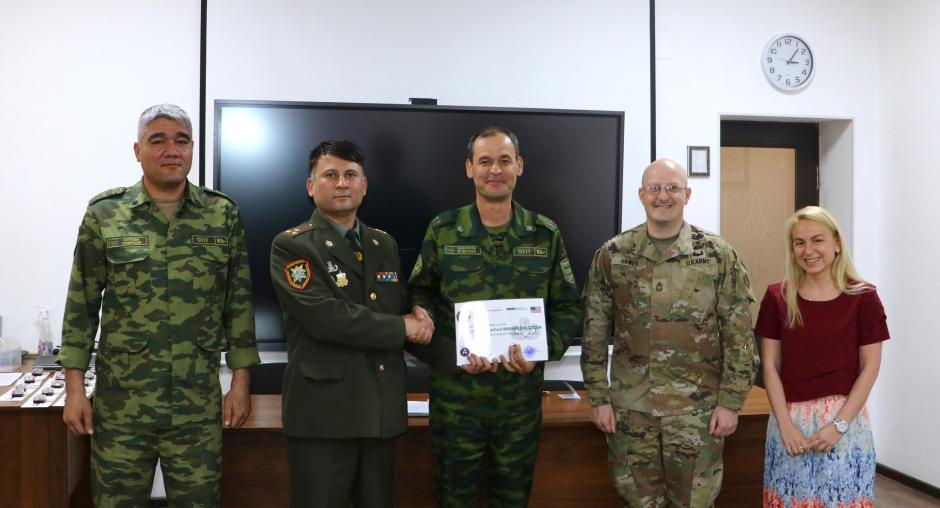OSCE organizes regional instructor development training for specialists from Kazakhstan, Tajikistan, and Turkmenistan

A week-long Regional Instructor Development Training program concluded on May 17, 2024, at the Regional Explosive Hazards Training Center (REHTC) of Tajikistan’s Ministry of Defense in Chimteppa, near Dushanbe.
Organized as part of the Integrated Co-operation on Explosive Hazards (ICExH) project, the OSCE Programme Office in Dushanbe (POiD) partnered with the U.S. Army Central Command (USARCENT) to deliver the training, hosted by the Ministry of Defense of the Republic of Tajikistan. The program took place from May 13 to 17, 2024.
Thirteen specialists and practitioners from Kazakhstan, Tajikistan, and Turkmenistan participated in the training. The program aimed to improve their teaching skills by providing them with essential techniques to enhance training delivery and knowledge transfer within their respective countries.
Over the five-day program, instructors honed their skills in various areas, including principles and theories of adult learning, Gagne’s model of instructional design, fundamentals of effective instruction, and providing learning guidance. They also focused on gaining and maintaining student attention, delivering course content effectively, and utilizing questioning techniques to promote learning. Additionally, participants learned to assess student performance, develop design principles for training materials, elicit performance, provide meaningful feedback, and implement student-led teaching.
The USARCENT instructors conducted the training, tailoring it to address the specific needs of Central Asian participants. This USARCENT-led program provided a valuable opportunity for participants to learn from experienced professionals and share best practices with colleagues from across the region.
This initiative strengthens regional co-operation and contributes to a more robust and effective training infrastructure across Central Asia. By equipping regional instructors with the necessary skills to create a more engaging and effective learning environment for future trainees, the program fosters a culture of continuous learning. Ultimately, this effort supports the broader OSCE goal of enhancing regional security and co-operation.
